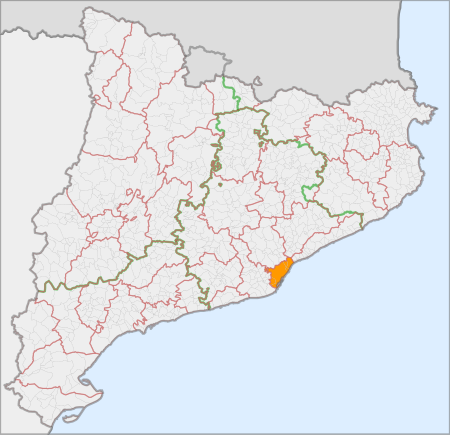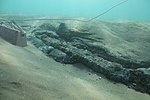The Battle of Barcelona (June 9–11, 1359) was a naval engagement fought in the coastal region of Barcelona, Catalonia, Spain, between the navies of the Crowns of Aragon and Castile, during the War of the Two Peters. A number of months beforehand, a large Castilian fleet had been assembled at Seville by order of the King of Castile, Peter I. Consisting of 128 warships including royal vessels, ships from the King of Castile's vassals, and several others that had been sent by the Castilian-allied monarchs of Portugal and Granada, this large fleet had been entrusted to the Genoese admiral, Egidio Boccanegra, who was seconded by two of his relatives, Ambrogio and Bartolome.
With Peter I also on board, as well as many distinguished noblemen and knights, the Castilian fleet set sail from Seville in April. Traversing the coast of Valencia and forcing the surrender of the Castle of Guardamar, it appeared before Barcelona on June 9. The king, Peter IV of Aragon and III of Barcelona, who was present at the city, organized the defense, together with the counts, Bernat III of Cabrera and Hug II of Cardona. The Aragonese disposed of ten galleys, a nau, and several small craft garrisoned by companies of crossbowmen, besides a line of siege weapons. Despite its inferior size, the fleet managed to repulse the Castilian attacks in a two-day battle that saw the first use of naval artillery: a bombard was mounted aboard the Aragonese nau and her shots heavily damaged one of the biggest naus of Peter I.










